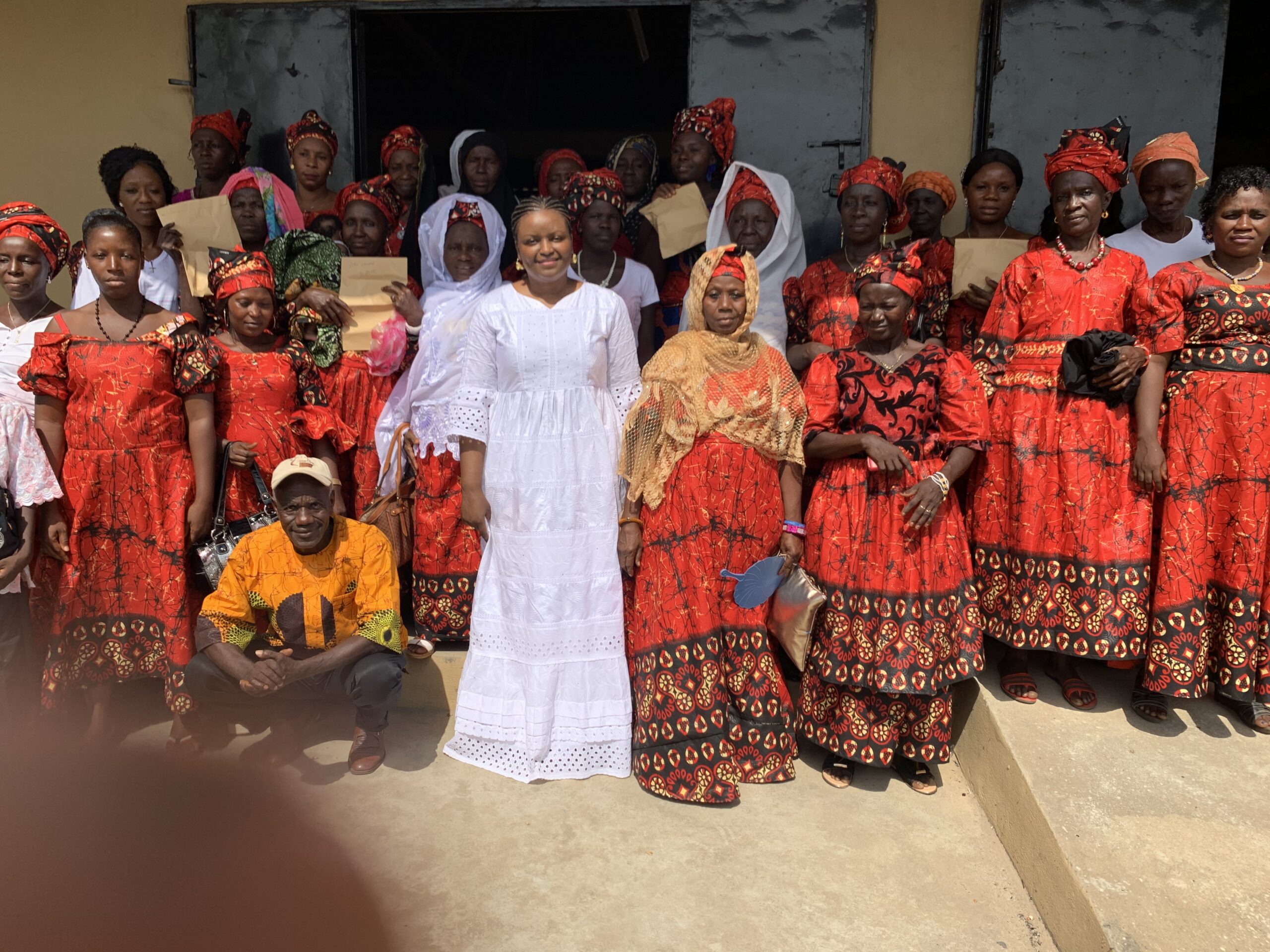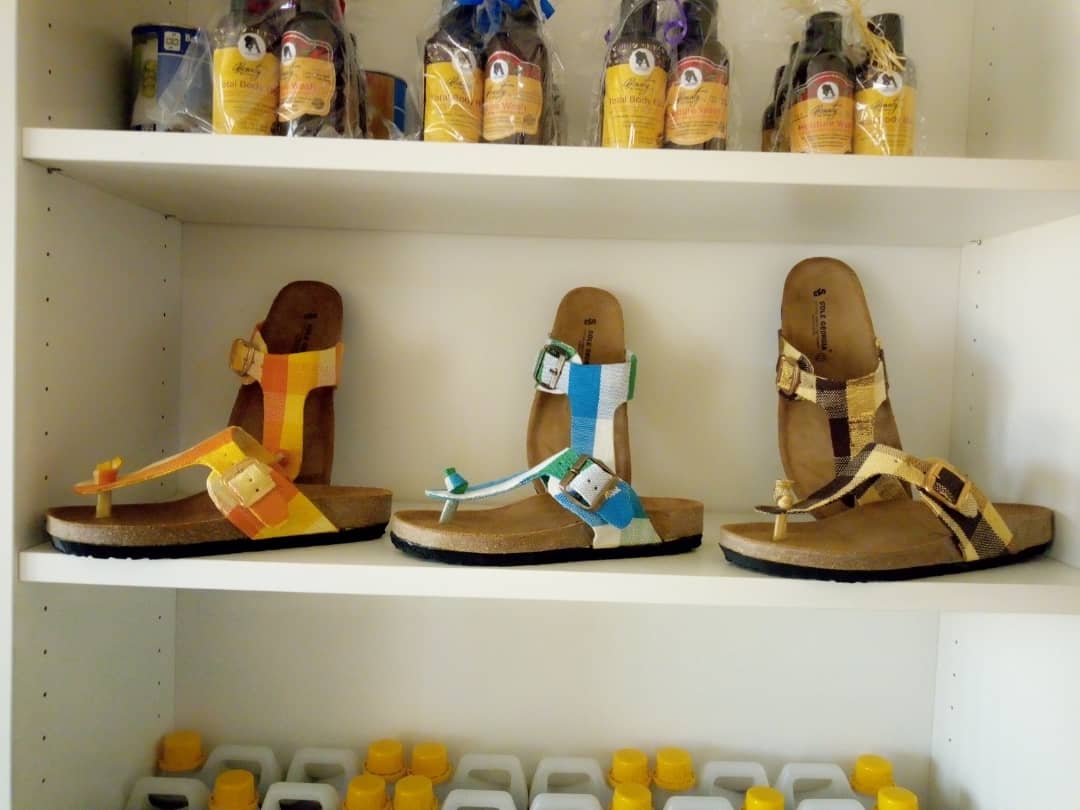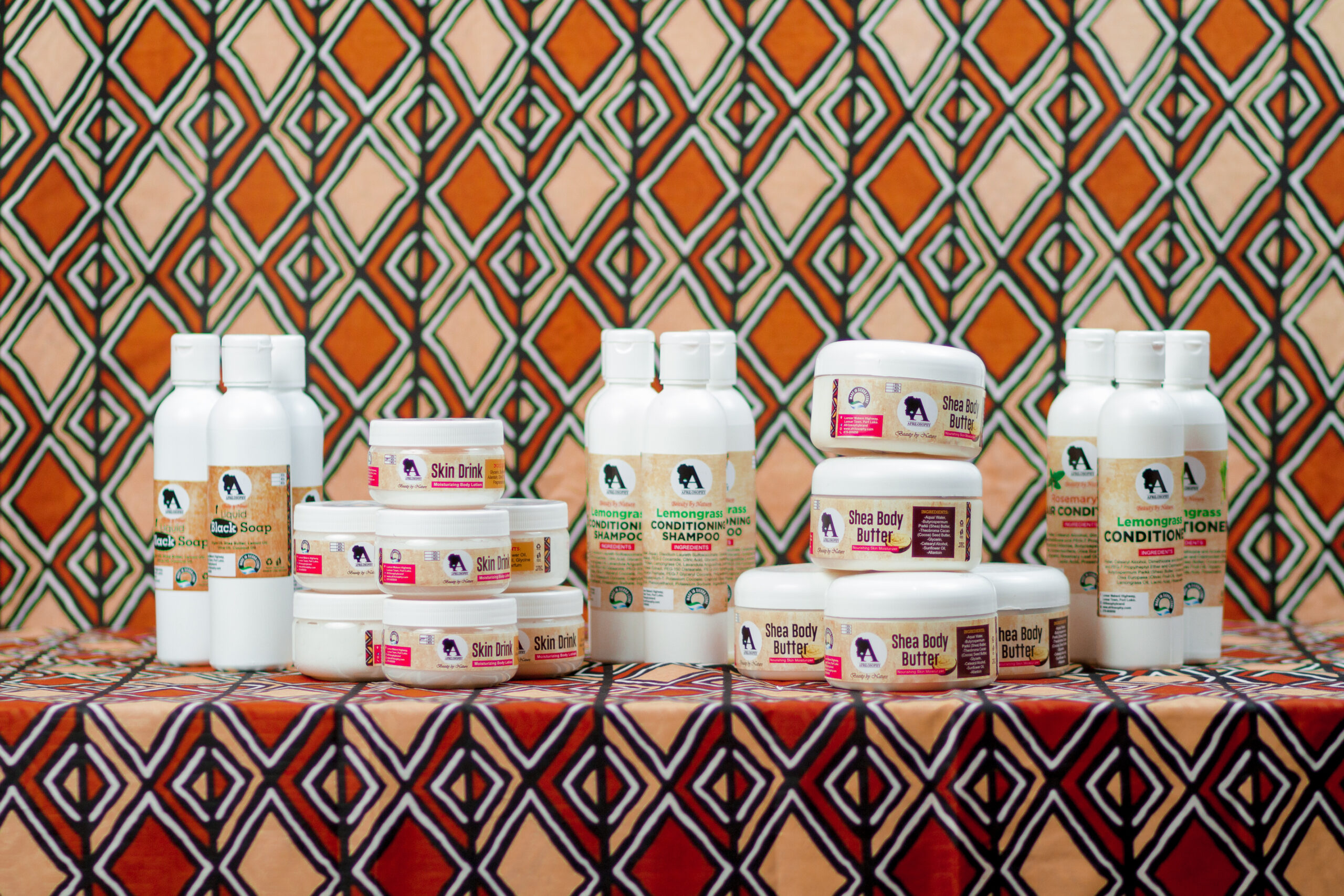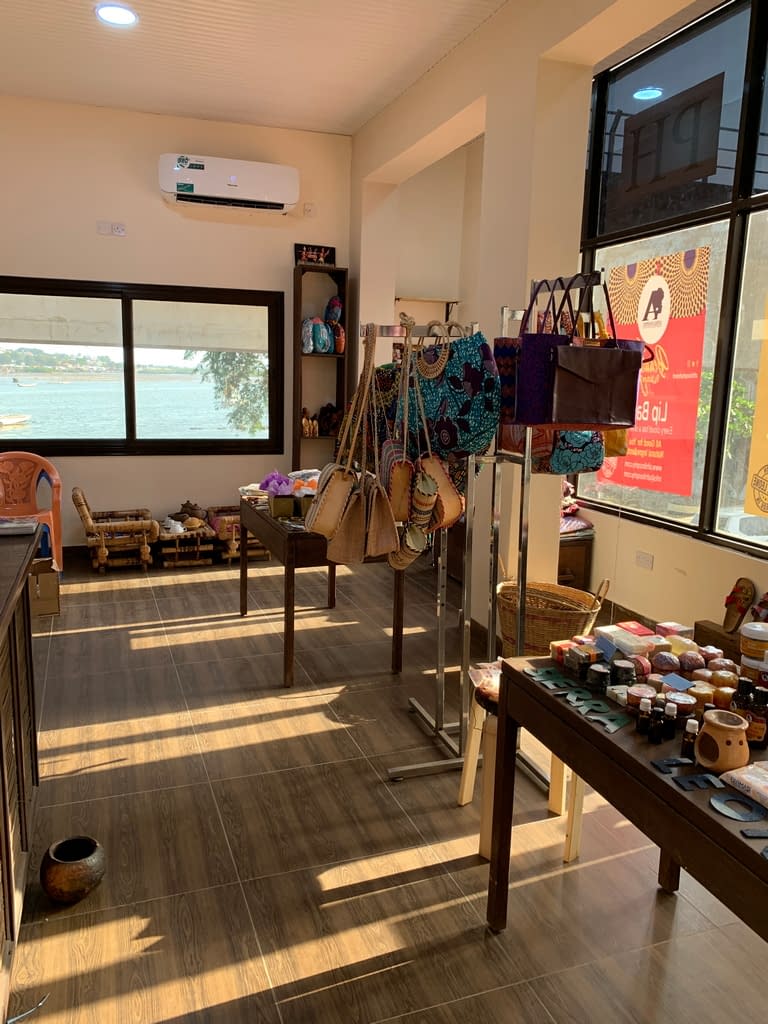
Isata Kabia is a passionate entrepreneur from Sierra Leone, very active in gender equality and equal opportunities. She grew up in a mining community where women didn’t have many job opportunities, but she has always wanted to help them find their place in the world. Therefore, she came up with the idea of Afrilosophy, an initiative through which she trains women and youth to become self-sufficient entrepreneurs through manufacturing skills and financial literacy.
After a few months, Isata felt that Afrilosophy could become more than a simple initiative. She wanted it to become a real, sustainable business. The problem was that she didn’t have any experience in the field of entrepreneurship. That’s why she decided to enroll in the Global MBA in Impact Entrepreneurship, offered at the University of Makeni.
“When I started working with women and Ebola survivors to give them life skills, as a chemist, I started with what I knew: cosmetics manufacturing. The first training was conducted outside in the open air. We didn’t have a building or a space. By the time we decided to construct a center, I had spent a lot of money due to dishonest contractors. I decided that this was no longer a community support initiative. It had to be run as a business for sustainability.” she told us, “So, I had to invest the time to learn how to do it. Having the opportunity to gain this expertise locally, with such a flexible schedule like the one of E4Impact MBA, with my full-time job, was wonderful. The E4Impact MBA is very practical and people-centered. It gave me the opportunity to scale my business and make a difference in many women and youth’s lives.”

1. How was your Business Idea born?
I lived in a mining community, where job opportunities mainly were for migrant men, and women and girls faced more and more social issues. We aimed to provide opportunities for women to create sustainable livelihoods. Being in a rural setting, I saw the need to provide skills to create rural enterprises.
Gender disparities institutionalized through social norms result in unequal access to education and resources for women. This, compounded by limited access to quality training opportunities, leads to women not earning a decent wage through decent jobs or sustainable businesses.
Many workforce training courses are long, stretching out through one year, and very expensive. Ours is short; the company subsidizes them locally, where the need actually exists, so they are less disruptive to daily lives.
As an internationally trained cosmetic chemist and processor, I wanted to pass on my knowledge to create jobs. I added other training opportunities for variation (bead slippers, jewelry making, tailoring, soap making, food processing) to give an opportunity to create value chains with local produce and to enable women to start their own businesses.

2. How can your business improve the life of the beneficiaries of your activities?
Our unique setup ensures an opportunity to practice what they have learned and perfect their craft within our manufacturing department through internships once training is complete. This opportunity to actualize the training allows them to see how their new skills work in a business setting and develop a business idea of their own.
Our REDi (Rural Enterprise Development initiative) center trains whoever wants to start their own business with business development support and office space to write their business plan. We provide financial management training exclusively for women. So far, 250 women have created eight groups who save together and loan each other for reinvestment. There is also an interest-free loan within this VSLA (village savings and loans associations) for emergencies such as health, funerals, or school expenses. This helps to sustain their small businesses, which may otherwise collapse due to these unforeseen situations.
3. What has been the main challenge you had to overcome in your entrepreneurial experience?
As for any entrepreneur, financing was tricky, but I think the lack of expertise held a special place in our particular venture. We had to train our own cosmetics chemists. We trained them to manufacture up to international standards, held them accountable to those best practices by having standard operating procedures, and ensured we had a retainer of each batch in the factory after it had gone out to be supplied. Making sure these standards are adhered to is of paramount importance as we grow, and we are focused on building a culture of trust.

5. Is there a person you are inspired by, i.e., an entrepreneur or a particular mentor?
I am inspired by companies such as Lush and the Body Shop. Starting small and growing organically is a deliberate strategy for Afrilosophy. We want to bring many people along, particularly women, to see how they can fit into our companies’ supply and employment chain. Also, it provides opportunities for talented artists to showcase their innovation and bring their products to the world stage. At the same time, build manufacturing industries that create jobs, and make us a more self-reliant country and less dependent on extractive industries. I am driven by the idea of exporting finished goods and not raw materials.

6. What would you suggest to a newborn entrepreneur?
Be flexible. The most important thing is to read the markets and provide a solution. If your original idea didn’t quite work the way you thought, read the market and adjust accordingly. Products are meant to solve a problem. If yours doesn’t provide a solution, change the product.
7. Could you tell us a particular satisfactory moment you had in your entrepreneurial activity?
We were able to start the training sessions of the first set of trainees at our center in 2017. It was a difficult few months in getting ready to open up the center. We sourced machines to make shoes, and the purchaser cheated us and sent old machines. We sourced raw materials for the cosmetics, containers, crested the logo, contracted the trainers, registered the participants. Finally, we started, and it was such a feeling of great accomplishment.
8. Could you tell us how the MBA has helped you and your business?
It’s a very practical MBA, where the lessons apply to the business. Every homework session was not a theoretical question but an actual problem to be solved for my business or some innovative learning, which applied to my case. So, as I progressed through the classes, my company developed. With a sustainable business, people in less developed areas can also ensure that their idea of impacting their communities is an achievable dream.
Learn more on Afrilosophy
Facebook page: @afrilosophybrand
Instagram Account: @afrilosophy
